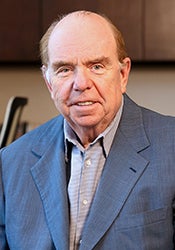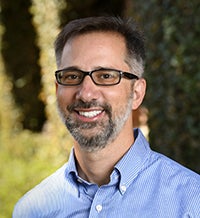
The #IowaCaucusDisaster: A teachable moment for politics and tech
On Monday night, Iowa officials struggled to report caucus results in a timely fashion amid disruptions with a new app to manage the results. Experts from the USC Dornsife College of Letters, Arts and Sciences discuss the rising use of tech in campaigns and elections, key takeaways from the #iowacaucusdisaster, as well as how to get answers on the app debacle.
When should we use tech in elections and campaigns?
“Adopting this app was crazy. For decades the results were just phoned in from each caucus, and the state party had enough phone lines and enough people to answer the calls and record the numbers.
“Technology is a tool for campaigns, but it should never become a bright shining object as it did in Iowa — and in 2016, when the Clinton campaign relied on data analytics rather than polling in battleground states and falsely concluded that Hillary Clinton had a secure lead.”
Robert Shrum is director of the USC Dornsife Center for the Political Future. He is an expert in presidential elections, political advertising and policy and a longtime Democratic political strategist.
Tech is never simple or fail-safe
“I’d just say in the modern era, no digital platform can be relied upon without rigorous training of users and plenty of testing. The Iowa (Democratic) party made a classic mistake assuming that just downloading an app would make the process work simply. It’s never that easy.”
Michael Murphy is co-director of the USC Dornsife Center for the Political Future. He is a political analyst and former Republican political strategist.
User error or coding issue? A records request could answer
“Election software epitomizes that critical code that affects so many vital facets of our lives. Both @DavidBerry and I have written about open source voting software. The code for this software is not in the public eye, presumably to avoid hacking. I look forward when the Freedom of Information Act makes the code for the Iowa app available for investigation, assuming that applies.”
Mark Marino shared these comments about the caucus app on his blog CCS Working Group. He is an expert in fake news, writing, coding and electronic arts and digital humanities, and professor (teaching) of writing.